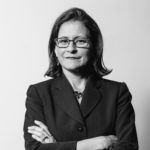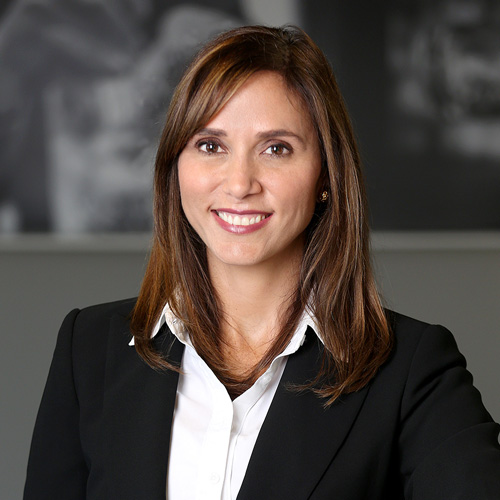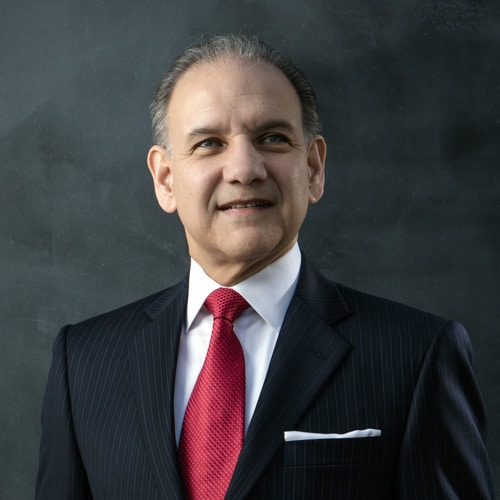Louis Miramontes grew up in a blue-collar Mexican American community in Union City, California, but, he says, he grew up with an edge.
Board Snapshot
Oportun, Board of Directors
Brown & Caldwell, Board of Directors
The Latino Community Foundation, Board of Trustees
His parents are children of Mexican immigrants who worked hard, focused on family, and acquired property when Miramontes was a child. They were able to provide their son with a strong work ethic, an emphasis on family, a cultural awareness, and foreign language skills, among other strengths. Miramontes’s parents made the sacrifices to invest for the long run, involved him in management of family-owned apartments, and emphasized the need to grow his own personal assets.
He learned about the positive effect of working as a team and, of course, the value of an education. By the time he got to college to study business and accounting at California State University–East Bay, he had already thought through his options a time or two.
“I thought about individuals and families that had achieved more than others and wondered, what’s the difference?” Miramontes says. “I realized some had college degrees while others became successful through other routes, and I decided I had an opportunity to use my personal and language skills, basic understanding of business, and a personal drive to get things done, which gave me a tremendous amount of confidence.”
College was quickly followed by a position in the audit practice at KPMG, one of the world’s largest accounting firms. In fact, clients of the firm were expanding to Mexico in the early 1980s—so KPMG asked Miramontes to transfer, which he did with his wife and their two young children, to Mexico City from 1982 to 1984.
“That was an eye opener and a door opener,” he says of the experience. “You’re thrown into a country with different operating styles, business practices, and regulations, all while being an ambassador for your home practice. My cultural and Spanish language skills were extremely helpful to me.”
When he returned to the US KPMG practice with a global view of business, Miramontes was promoted to the San Francisco Bay Area practice. In this and later roles, he served internationally and worked closely with many C-level executives and corporate boards. It was thirty-eight years in all that Miramontes worked for KPMG, retiring as a managing partner and one of the highest ranking executives in the company in 2014.
Upon retiring, he dedicated his time and energy toward deeper involvement with something with which he was already quite familiar: boardrooms. In addition to spending multiple business cycles with CEOs and leadership teams, Miramontes served on KPMG’s board nominating committee for three years—something that gave him a deep comprehension of a boardroom’s needs. “You have to have trust from the CEO that you have capability, acumen, and the company’s best interest in mind,” he says. “And as I look back, that’s always what I had.”
His board experience is extensive, but two boards in particular represent his highest-profile work to date. He sits on the board of Brown and Caldwell, an environmental firm based out of Walnut Creek, California. The firm serves the United States and forty-five international locations worldwide with a staff of more than 1,500. He also serves as director of the board for Oportun, a financial services company with more than two hundred locations, serving primarily west and southwestern states as it provides affordable loans to Latinos and others with limited credit histories.
“It’s important to understand the dynamics of a board,” he says. “A board can’t have all accountants, attorneys, or bankers. You have to determine how you can bring skills and experiences to the boardroom, and how the corporation and stakeholders can benefit from your efforts.”
Regardless of the type of business at hand, decision-making can be one of the biggest challenges to befall its board. But it’s hardly a time to stay quiet. “You might have some insight into a certain matter that a fellow board member may not have,” Miramontes points out. “You need to express your opinions so they are heard and incorporated in the decisions made and actions taken. You must have the confidence to put your perspective on the table.”
“You also have to follow-up on the input,” he adds. “What can be learned from it? How effective was the board in vetting important matters and making a particular decision?”
As for decisions related to his personal future, Miramontes keeps them relatively simple: more family engagement and more effectiveness in the boardroom. One way he envisions doing that is by getting onto another large corporate board in the near future.
At this point, Miramontes defines success as being able to contribute to the success of others. “I ensure that the companies I serve are as successful as they can be with their business objectives, while implementing proper governance to positively impact the key executives I interact with,” he says.
“Success isn’t one destination—it’s a longer journey,” he elaborates. “Don’t be shy if you find you’re influencing people’s decisions. You have to have the confidence to use and share your knowledge. And if you don’t have it—go get it.”
 In the Director’s Seat With Esther Aguilera
In the Director’s Seat With Esther Aguilera
Esther Aguilera: After having retired from a high-powered career at a top accounting firm, describe what it is like to apply your boundless expertise in the boardroom. What sort of company do you feel fits your skill set best as a board director?
Louis Miramontes: Spending thirty-eight years at a global accounting firm was a wonderful experience. KPMG provided me with a foundation to be a successful professional, specific experience in several industries, international skills, and, above all, endless opportunities for personal growth. I was able to leverage the ‘KPMG Way’ to become a successful partner, a managing partner of a large office, regional leader for KPMG’s practices in Latin America, and a founding member of KPMG’s diversity advisory board. I was the lead audit partner for many corporate boards and C-level executive of both public and private corporations. These experiences provided me with the tools to be a successful board member and audit committee member. I believe I bring value to boards and corporations that I serve, providing oversight of corporate functions and insight on critical areas such as growth initiatives, risk management, development of key executives, succession planning, and regulatory compliance.
EA: What are some ways that you’ve seen first-hand how having diversity in the boardroom can lead to more informed decision-making and better decisions?
LM: A key responsibility of corporate boards is to be involved with key business decisions such as naming a new CEO, deciding on a key M&A transaction and approval of a change in direction of the corporation. Having a skilled and balanced board leads to better decisions on these and other key matters. Diversity is critical to having a balanced board, as diverse backgrounds, skills, gender, and ethnicity provides varying views and inputs to the decision making process. My professional experience and Hispanic background make me a more effective board member. I now focus on doing things the right way in order to obtain the right result.

